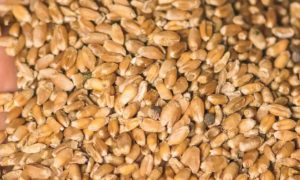India-US Corn Trade Dispute and Ethanol Policy

U.S.–India corn trade tensions arise from India’s self-sufficiency and ethanol use. India diverts maize for ethanol, supporting energy security and rural incomes. The U.S. seeks export markets to sustain agribusiness and political interests. Cheap imports risk harming Indian farmers, undermining domestic ethanol goals, and weakening economic and environmental benefits.
Recent tensions between India and the United States centre on corn trade. The U.S. demands India import American corn, but India remains largely self-sufficient. This dispute marks differences in agriculture, trade policy, and political interests in both countries.
India’s Maize Production and Ethanol Use
India produces about 50 million tonnes of maize annually with yields below the global average. Despite this, India often meets its maize needs domestically and occasionally exports. Maize is increasingly used for ethanol production, with 10 to 12 million tonnes expected to be diverted this year. This shift balances food security with energy goals, especially ethanol blending in petrol to reduce oil imports and carbon emissions.
India’s Import Patterns and GM Crop Policy
India imports maize mainly from Myanmar and Ukraine, not the U.S. This is partly due to India’s ban on genetically modified (GM) corn imports. Only GM cotton is approved for cultivation, while GM brinjal and mustard remain under study. Public concerns about GM crop safety influence policy. India’s maize imports have increased recently but remain limited and targeted at ethanol feedstock.
U.S. Agricultural Structure and Export Motivations
U.S. farming is highly mechanised, capital-intensive, and focused on cash crops like corn and soybeans. The U.S. produces 350 million tonnes of corn annually, exporting about 45 million tonnes. Corn supports industries including ethanol, animal feed, and processed foods. Overproduction drives the U.S. to seek export markets, including India’s ethanol sector, to sustain agribusiness profits and political support.
Political Stakes in U.S. Corn Exports
Corn and soybean production dominate the U.S. Midwest, a Republican stronghold crucial to presidential primaries. The corn lobby wields influence on U.S. trade and farm policies. Loss of the Chinese soybean market has intensified pressure to find alternative buyers. Exporting to India fits U.S. political and economic interests, despite India’s reluctance to import GM corn.
India’s Strategic Concerns and Domestic Impact
India fears that cheap U.S. corn imports could harm its domestic maize ecosystem and farmers, especially in politically sensitive states like Bihar. The experience of Mexico post-NAFTA, where cheap U.S. corn devastated local farmers, serves as a cautionary tale. Importing corn feedstock for ethanol contradicts India’s goals of energy self-reliance and reducing foreign exchange outflow.
Economic and Environmental Dimensions
Ethanol blending reduces India’s oil import bill by up to $10 billion annually and lowers carbon emissions. Using domestically grown maize supports farmers and rural economies. Relying on imports would undermine these benefits and weaken India’s ethanol policy objectives.
To Read more about Maize News continue reading Agriinsite.com
Source : GK Today














